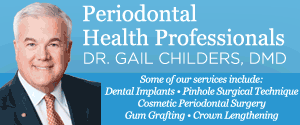Medical breakthroughs and conscientious care are making cancer treatment in South Jersey more effective than ever before.
As Cinnaminson’s Theresa and Eric Peterson prepared to celebrate their first wedding anniversary, the last thing on their minds was cancer. Theresa was planning to start fertility treatments so they could begin building their family. But first, her fertility specialist, Dr. George S. Taliadouros, wanted her to get a mammogram to check a suspicious lump that had developed in her breast.
Within 24 hours, Theresa was diagnosed with stage-three breast cancer, and was scheduled for a bilateral mastectomy and aggressive chemotherapy. The couple’s pregnancy hopes were put on hold while Theresa’s survival instincts kicked in. “I always knew I would beat it; I knew I would survive it. I knew I was not going to let this get me down,” she says. “But did I see myself later on having my own biological child? Absolutely not.”
Fortunately, Theresa had the latest advances in cancer care at her disposal. “We have state-of-the-art cancer care here now,” says Dr. Scott Dorfner, founder of Dorfner Family Medicine in Burlington Township. “We have our own local cancer centers at Virtua, Kennedy, Cooper, Lourdes—and they’re all affiliated with the major cancer centers, so you don’t have to go across the river anymore for great cancer care.”
Early Detection
It’s no secret that the sooner you diagnose cancer, the better your chances of survival. That’s why Dr. Sandra Elder of the Skin Rejuvenation Center in Marlton recommends that everyone—especially those older than 18—check themselves once a month for potential skin cancers.
“Follow the ‘ABCD’s of skin cancer detection: Check for asymmetry, see if the border is irregular, look for color that is not uniform, and diameter is important as well,” Elder says. “However, sometimes you can find melanomas that are very tiny in diameter—so if anything seems different or suspicious, have a dermatologist look at it.”
While older patients are most susceptible, Elder warns that anyone with a family history of skin cancer, or prolonged exposure to the sun (or tanning beds), is at heightened risk.
When a suspected cancerous or pre-cancerous lesion is found, a general dermatologist can perform a quick and nearly painless biopsy to determine whether cancer is present—and what type of cancer it may be.
“Nothing beats a biopsy,” says Dr. Birgit Toome, of Appearance Dermatology in Marlton, Vineland and Egg Harbor. “It is a simple procedure, and it gives you a 100 percent diagnosis of cancer or no cancer. It leaves little to no scarring and gives patients peace of mind.”
Pre-cancerous lesions can be treated with a topical cream, or with cryosurgery, which involves spraying liquid nitrogen on the skin cancer.
“When you’re dealing with melanoma, a general dermatologist would remove it in its entirety. But depending on the level of the melanoma, that person may be referred to an oncologist for things like lymph node mapping and ancillary chemotherapy,” Toome says. “If the melanoma was caught extremely early, then the only thing that would be required would be surgery to remove it and then yearly monitoring.”
Screenings are just as essential for other kinds of cancer, including prostate, breast or colon cancer. And it’s important to note that, even when you do get screened, not all diagnosticians are equal. Dorfner refers female patients to Dr. Kathleen Greatrex, chief of radiology and nuclear medicine at Our Lady of Lourdes Medical Center in Camden. “She is a fabulous reader of mammograms,” Dorfner says. “She’s someone that you would want to take a look at you.”
Treatment
Following diagnosis, patients have a host of options open to them—which is good news, according to Dr. Lynn Schuchter, chief of the division of hematology-oncology at the Abramson Cancer Center, which is part of Penn Medicine. “Today, more and more cancer treatment is designed for the individual patient,” she says. “We can offer drugs that target the cancer or train the body’s immune system to fight tumors—often without the side effects like nausea and hair loss that patients typically expect. Our physicians and scientists are developing and testing these new therapies so that patients have not just one treatment option, but a comprehensive plan that gives them real hope for a cure.”
Furthermore, that menu of treatments is being administered by more cohesive specialist teams, that include medical, radiation and surgical oncologists and nurses all focusing on one particular type of cancer, Schuchter says.
For some patients, the first step may be surgery to remove the tumor. One of the most advanced options is robotic surgery with the da Vinci Surgical System, which is currently in use at Kennedy Health System’s department of thoracic surgery in Sewell.
Dr. Kenneth Adam Lee, the department’s medical director, has been using the da Vinci robot in cancer-related surgeries since 2003. Lee finds that the 3-D imaging improves visualization, and allows for increased dexterity, compared to traditional laparoscopic surgery.
“Big surgeries used to mean big incisions, but now it’s all about making the patient more comfortable and getting them back to their day-to-day activities even though they’re fighting cancer,” Lee says. “The da Vinci robot has helped to develop that minimally invasive approach.”
Some patients may require chemotherapy or radiation therapy to kill all the cancer cells. Radiation therapy is more targeted than ever thanks to image-guided radiation therapy (IGRT), notes Dr. Alexis Harvey, medical director at 21st Century Oncology’s four South Jersey locations. The imaging system means the physician has a visual guide for where to direct the targeted treatment. “For patients it means a shorter treatment time and a more precise type of treatment for their cancer, meaning that you’re avoiding treating surrounding normal tissue,” Harvey says. “If you can really pinpoint it right on the cancer, then there are less side effects.”
All of 21st Century Oncology’s South Jersey offices have IGRT; the Woodbury office also has a high dose rate machine, which Harvey says greatly reduces the length of treatment. “Instead of getting the usual six to seven weeks of radiation, you get all of your radiation within a week by having this device implanted in you, and you treat [the cancer] with high dose rate radiation treatments twice a day,” she says. “Or, for skin cancer patients who can’t come in five days a week for four to five weeks, you can come in once a week for three to four weeks.”
The new technology also makes radiation therapy quick and painless. Harvey says treatments only take about five to 12 minutes, depending on the type of cancer. “Even though radiation is an everyday event, it’s not an all-day event,” Harvey says. “I like to see my patients live their typical lifestyle.”
Life After Cancer
After the whirlwind of cancer treatments, patients may need ongoing care. In Theresa Peterson’s case, her treatment at a Cooper University Hospital location in Voorhees eliminated her cancer—but she needed fertility treatments to restore her dreams of being a mother.
“When people get the diagnosis of cancer, the first thing they think is to survive,” says Dr. Taliadouros, founder and director of the Delaware Valley Institute of Fertility and Genetics in Marlton. “Then when they survive, they realize their fertility has been compromised. We feel that preserving fertility is the link to life, and it’s so important to patients. It contributes to their recovery. With survival rates increasing, the focus is now on the quality of life—and fertility is an important element to that.”
Taliadouros developed the SEEDS program—which stands for Semen, Embryo and Egg Depository and Storage—to allow men and women facing a cancer diagnosis to have peace of mind about their fertility future. Through the program, patients freeze semen, eggs or embryos to use when they are healthy enough to get pregnant or to be carried by a surrogate. And, because many cancer patients can’t handle the hormones in fertility medications, Taliadouros has helped develop a cutting edge procedure called in vitro maturation (IVM)—in which patients receive a lower dose of hormones before the eggs are retrieved and matured in a laboratory.
“I had my bi-mastectomy on a Friday, and on Monday I was at Dr. T’s office getting medication to start helping me produce eggs,” Theresa recalls. “The amount of chemotherapy I would be receiving would most likely put me in menopause, and I wouldn’t be able to produce eggs afterwards.”
Cancer patients are advised not to become pregnant until five years after their treatment is concluded. So, just a year after Theresa was declared cancer-free, her younger sister stepped up and agreed to be the surrogate. Today, the couple look at their 2-year-old daughter, Rebecca, as an amazing gift—from a loving sister, but also from the dedicated physicians that helped them overcome cancer.
And for patients like Theresa, says Taliadouros, treatment options are only improving.
“There are a lot of things around the corner for these patients,” he says. “Hope is there for them.”
Cutting-Edge Care
These local medical experts offer top-of-the-line preventative medicine, treatment and follow-up care.
Aesthetic Dermatology
Dr. Sandra Elder brings 17 years of clinical & research experience, as well as several publications in dermatology & laser surgery to her practice. The practice includes general adult & pediatric dermatology, skin cancer diagnosis, surgery & cosmetic dermatology.
Marlton
(856) 596-3393
www.skinrejuvcenter.com
Appearance Dermatology
Established in 1990, the practice offers both general and cosmetic dermatology. Striving to make each patient feel that one-on-one personal touch, they offer a treatment plan designed specially for the patient’s individual needs. The office specializes in all diseases of the skin, hair and nails, and maintains 13 lasers on site.
Marlton
(856) 751-9560
DrToome.com
Delaware Valley Institute of Fertility & Genetics (DVIF&G)
When facing a cancer diagnosis, it is difficult to think of anything beyond treatment and survival. But more and more, patients are realizing that there is another factor to consider: their fertility. Radiation and chemotherapy treatments can have serious consequences on future fertility. DVIF&G will carefully craft a plan to maintain your “link to life” by insuring your reproductive possibilities through their SEEDS program.
Marlton, Lawrenceville and Vineland
(856) 988-0072
DVIFG.com
Dorfner Family Medicine
Through their five convenient locations, their highly experienced staff of Board-Certified physicians and dedicated support staff of medical assistants, administrators and health care professionals, they are committed to providing the finest family medical services available.
Burlington
(609) 387-9242
DorfnerFamilyMedicine.com
The Kennedy Cancer Center
A member of the Penn Cancer Network, Kennedy Health System’s team of board-certified surgeons, medical and radiation oncologists, radiologists, pathologists, oncology-certified nurses, an oncology nurse navigator, a social worker, and support staff work as a team to meet the needs of cancer patients and their families at the conveniently located Kennedy Cancer Center. There, you will find patient-centered access to all elements of care, as well as support programs and classes for patients and their caregivers.
Serving South Jersey
(856) 218-5777
KennedyCancer.org
Penn’s Abramson Cancer Center
Penn’s Abramson Cancer Center is designated a Comprehensive Cancer Center by the National Cancer Institute (NCI). This designation reflects excellence in research, clinical services, education and community outreach. As part of Penn Medicine, one of the world's leading academic medical centers, Abramson can address all of a patient’s medical needs.
(800) 789-PENN (7366)
PennMedicine.org/Abramson.
Published (and copyrighted) in South Jersey Magazine, Volume 8, Issue 4 (July, 2011).
For more info on South Jersey Magazine, click here.
To subscribe to South Jersey Magazine, click here.
To advertise in South Jersey Magazine, click here.












